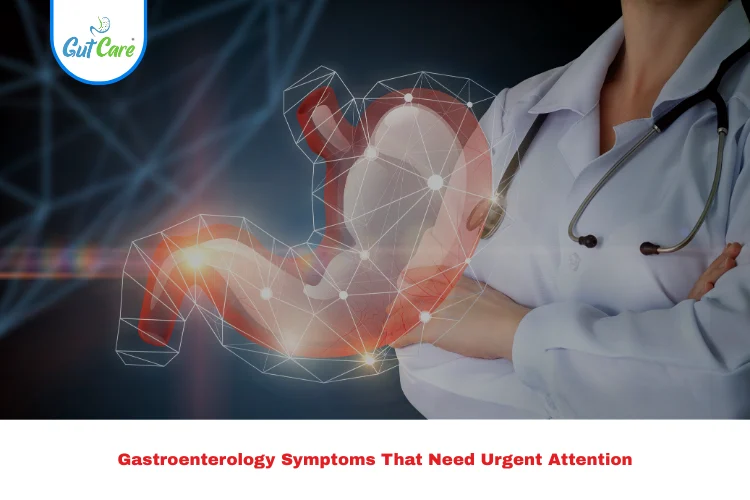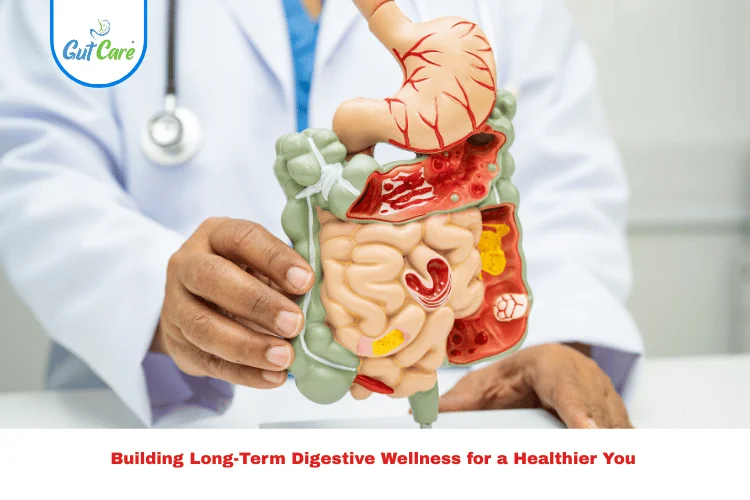Your digestive system works hard every single day—breaking down food, absorbing nutrients, and keeping your body energized. But when something goes wrong, your gut often gives you signals. Sadly, many people brush off these warning signs as “normal stomach issues” until the condition worsens.
Recognizing gastroenterology symptoms early can make all the difference. At Gutcare Clinics in Bangalore, under the care of Dr. Yuvrajsingh Gehlot, patients receive specialized diagnosis and treatment for a wide range of digestive problems. Let’s look at 10 common gastroenterology symptoms that you should never ignore.
1. Persistent Abdominal Pain
Almost everyone has stomach aches now and then. But if abdominal pain keeps coming back, lasts for days, or gets worse after meals, it could mean ulcers, gallstones, or even pancreatitis. Don’t dismiss it as “gas” if it doesn’t go away.
2. Frequent Heartburn or Acid Reflux
An occasional burning sensation after spicy food is normal. But when heartburn becomes frequent—say, more than twice a week—it might be GERD (Gastroesophageal Reflux Disease). Chronic reflux not only affects quality of life but can damage the esophagus lining.
3. Sudden, Unexplained Weight Loss
Dropping weight without changes to diet or exercise can sound like a blessing, but it often signals something serious. Conditions like celiac disease, thyroid issues, or gastrointestinal cancers may cause this. This is one of the most critical gastroenterology symptoms to act on quickly.
4. Blood in Stool
Seeing blood in stool can be frightening—and rightly so. While sometimes caused by hemorrhoids, it can also indicate colon polyps, infections, or colorectal cancer. A quick visit to a gastroenterology specialist like Dr. Yuvrajsingh Gehlot helps rule out serious conditions.
5. Ongoing Diarrhea
Occasional loose motions usually clear on their own. But if diarrhea continues for weeks, it may mean IBS, Crohn’s disease, or ulcerative colitis. Long-term diarrhea also causes dehydration and nutrient loss, so professional help is essential.
6. Long-Lasting Constipation
Not going to the bathroom regularly for weeks, despite drinking water and eating fiber, could point to colon blockages or thyroid problems. Persistent constipation should never be ignored, especially if it’s accompanied by pain or blood in stool.
7. Trouble Swallowing (Dysphagia)
Struggling to swallow food or feeling like food is “stuck” in the throat may indicate esophageal narrowing or GERD complications. In rare cases, it could be linked to cancer. Don’t wait until it gets worse—diagnosis at the right time makes treatment easier.
8. Jaundice (Yellow Eyes or Skin)
Jaundice is not just a cosmetic issue—it’s a sign your liver isn’t working properly. It can be caused by hepatitis, gallstones, or bile duct blockages. Since the liver is central to digestion, jaundice requires immediate medical evaluation.
9. Persistent Bloating and Gas
Bloating is common after overeating, but if it happens daily or comes with pain, it may point to lactose intolerance, celiac disease, or infections. Regular bloating, especially with weight loss, is one of those subtle gastroenterology symptoms that deserve attention.
10. Vomiting Blood
If you ever vomit blood or see something that looks like coffee grounds, it’s a medical emergency. This may mean bleeding ulcers or torn blood vessels in the stomach or esophagus. Immediate care from a gastroenterologist is life-saving in such cases.
Why You Should See a Specialist
Ignoring these gastroenterology symptoms often leads to delayed diagnosis. At Gutcare Clinics in Bangalore, Dr. Yuvrajsingh Gehlot provides expert consultation, endoscopic tests, and personalized treatment plans. The earlier you seek care, the better your recovery and long-term health.
Remedies and Lifestyle Tips
- Eat mindfully: A diet rich in vegetables, fruits, and whole grains helps digestion.
- Stay hydrated: Water supports bowel movements and nutrient absorption.
- Move daily: Exercise improves gut motility and overall metabolism.
- Cut down alcohol & smoking: Both irritate the digestive system and increase risks.
- Schedule check-ups: Regular screenings help detect issues early.
Conclusion
Your gut is your body’s engine—don’t ignore the warning lights. If you notice any of these gastroenterology symptoms, don’t rely on home remedies or over-the-counter drugs alone. Reach out to an expert like Dr. Yuvrajsingh Gehlot at Gutcare Clinics, Bangalore for professional advice and timely care. Remember, the sooner you act, the healthier your tomorrow will be.
FAQs on Gastroenterology Symptoms
1. What are the early gastroenterology symptoms I should take seriously?
Abdominal pain, heartburn, unexplained weight loss, bloating, blood in stool, and difficulty swallowing are among the most important ones to watch.
2. How do I know if my heartburn is serious?
If heartburn occurs more than twice a week or disrupts sleep, it could be GERD. Consulting a gastroenterologist ensures proper treatment.
3. Can lifestyle changes reduce gastroenterology symptoms?
Yes. Eating fiber-rich foods, drinking water, exercising, and avoiding alcohol or smoking can improve digestion and reduce many symptoms.
4. Does Gutcare Clinics in Bangalore treat complex gastroenterology issues?
Yes, Gutcare Clinics offers advanced diagnostic tools and treatments under the guidance of Dr. Yuvrajsingh Gehlot, a trusted gastroenterology specialist in Bangalore.
5. Is blood in stool always a sign of cancer?
Not always. It may come from hemorrhoids or minor tears, but it can also indicate colorectal cancer. That’s why medical evaluation is essential.




